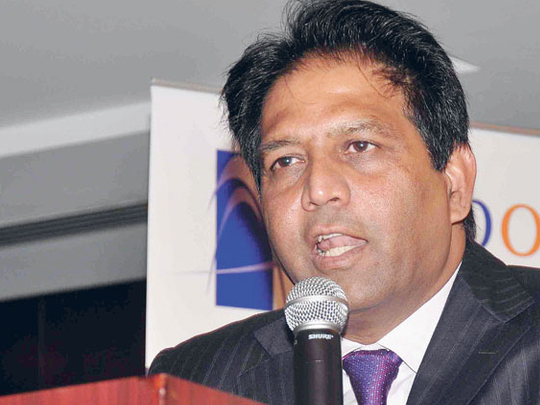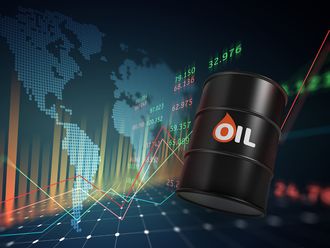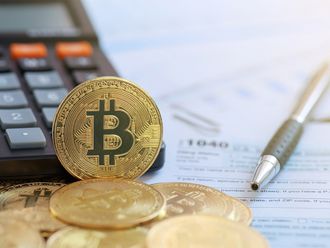
Dubai : While the majority of companies in the Gulf are still trying to cut costs by laying people off, Mulk Holdings, a Sharjah-based green energy and aluminium composite panel manufacturer, is hiring them to support the Dh2.5 billion expansion it has announced in recent months.
The company, which has developed its own patented green energy products, last month announced a Dh450 million expansion including creating a joint venture with India's Enpark to create six industries in UAE, India, Europe and Sri Lanka, that is expected to create 2,000 jobs.
Earlier, Mulk Re, the renewable energy arm of Mulk Holdings, signed a Dh2 billion agreement with Aditya Solar Power Industries (ASPI), based in Bangalore, to install a 200 megawatt solar thermal project in India.
The growth is spearheaded by Nawab Shaji Ul Mulk, chairman of Mulk Holdings, who has an ambitious plan to expand the group's footprint across all continents to make it a global champion of renewable energy. The company owns 85 per cent stake in US-based aluminium panel manufacturer Alubond, for which Mulk Holdings own the rights to market in Europe, Middle East and India.
With the latest expansion, the holding company will have 21 subsidiaries in renewable energy, real estate, health care, interiors, furniture manufacturing, solar power and aluminium panels.
"Green energy and solar power businesses are the most recession-proof businesses in the world. We are expanding due to the growing demand for our products and services," Shaji Ul Mulk said. "Besides, we are going to serve 80 countries across the world where market conditions vary from here."
The company is currently testing a pilot project in its UAE plant to manufacture aluminium panels that will generate power by utilising sunlight, replacing photovoltaic panels.
In an exclusive interview, Nawab Shaji-Ul Mulk lays out his game plan. Here are excerpts from the conversation:
Gulf News: What is the outlook for the renewable energy, especially the photo voltaic (PV) and solar panel market in the GCC and Middle East and North Africa (Mena) markets?
Nawab Shaji Ul Mulk: The future looks bright if you go by the huge number of projects being announced in the GCC and Mena.
Investment in solar energy can create annual revenues of $90 billion in the Middle East and North Africa (Mena), according to global management consulting firm AT Kearney.
Deserted (a trans Asia-Africa-Europe renewable energy grid) has perhaps been the most ambitious project announced. UAE, Bahrain, Qatar in GCC have been in the news with large solar initiatives. Morocco, Algeria have also announced large solar projects. So, the outlook for renewable energy is bright and that's why we are expanding our capacity to meet the future demands.
Do you think that government should come up with a strong regulatory framework to reduce UAE's carbon footprint? Do you have any suggestion to the government to make things more green?
It is undeniable that overall costs of producing electricity from renewable sources are greater than producing electricity from fossil fuels. So it's not realistic to expect private sector investors to develop a renewable energy project and to compete on the same level as producers of electricity from fossil fuels sources.
Therefore, favourable government policies become critical in bridging the gap between the cost of different energy sources. Government agencies in UAE need to emulate successful international policies like the ones adopted by Spain, Germany and now India where individual home owners can produce solar power and get paid by government by a policy of high tariff rates.
Other effective measures to reduce carbon emissions would be a ‘carbon tax' on industries emitting CO2 and a mandatory minimum 10 per cent solar power supply for all such industries.
Apart from making policies on renewable energy, policy makers should also make Green Building Code mandatory which will encourage manufacturers to reduce carbon foot prints in their manufacturing process, builders to use green products and conserve energy.
As most of the projects require large funding and very often projects fail due to the inability of investors to reach financial closure, it is important for government to make available easy loans at favourable rates. Also it is important to encourage new and cost effective technologies to reduce the current high capex of solar plants and make the solar technology more affordable and the country more green.
What is your company's current order book value?
Mulk Renewable energy has booked more than 175 MW of concentrated solar power projects through Memoranda of Understanding (MoUs) signed under solar policy in India and also have many projects around the world using their new technology. The estimated value of all these projects is over $500 million.
You have recently announced some expansion plans. Could you elaborate?
The expansions have been due to the result of the group's presence in diversified business and spread globally. Apart from expansion in our core Alubond composite panel manufacturing lines being set up in Saudi Arabia and Iran, we also have joined hands with India's Enpar Group to develop six manufacturing plant with potential investment to the tune of Dh300 million that is expected to create over 1,000 jobs.
These projects, all of which are in the advanced stages of implementation, will include Mulk Enpar renewable Energy in UAE and India - focusing on solar energy and processed heat applications.Developing Alubond USA manufacturing plant in India under Alubond Dacs India Pvt Ltd and Alubond plant in Sri Lanka focusing on aluminium coil coating. We have also created Stradt Interiors, an interior fit-out and joinery company in Jebel Ali and a 100,000 tonne aluminium coil plant either in Abu Dhabi, or Sohar in Oman. Additionally, we are planning to build Alubond Europe, an aluminium composite panel manufacturing plant in Belgrade.
Your company is doing well when others are cutting costs. What is your unique selling point?
We see recession as a re-setting to understand market forces, global opportunities and customer demands. We have always believed in developing and delivering products which give unprecedented value for money. Our products have a high quality, internationally certified, high brand value and economically priced. This has stood us in good stead where we have evidenced many new markets shifting gear and wanting quality at an affordable cost. This combined with a great team has been our USP.
How strong is your research and development?
Staying ahead is critical for success. We believe in creating long lasting customer partnerships and spend considerable time and money in developing new products and also extending our existing products life cycle. We have dedicated Research and Development teams and healthy budgets for each product. As an example, over $2 million has been spent and another $3 million is allocated for R and D of our solar programme. We have R and D centres in the US, UAE and India which has helped us to churn out innovative products such as CSP Parabolic troughs, Alubond Green, Alubond Acoustics, Alubond Solar collector mirrors, Mirror Booted PV Systems, Low Cost Solar Homes and Energy Saving Fascades, to name a few.
How many people are workingfor the company, globally and regionally?
We have a very diversified business operation which is customer centric and quality focused. In spite of sophisticated automation and high-end ERP softwares the direct staff and employee component world wide is over 1,000. This number is expected to increase to over 2,000 shortly with the big expansions.
In the UAE alone our employment would be around 600. As our product is available in 80 markets which is sold through our distributor network who are our extended family and in total the number of Alubond and other group companies would be nearly 10,000.
What is your company's annual turnover? Could you give us the breakdown, sector/business- wise?
Mulk Holdings has a current turnover of over $1 billion globally and expected to reach over $2.5 billion by 2013 with their expansion plans with Mulk Enpar. Alubond manufacturing units in the US, UAE, Europe, India, Saudi Arabia, Iran will be approximately 30 per cent. Solar Programme would be approximately 25 per cent, Aluminium Coils and coating would be 20 per cent, healthcare would be approximately 15 per cent and balance 10 per cent from other group companies like Interiors fit out, LDPE, Recycle Units etc.
How many countries do you have offices in?
Mulk holdings has direct offices in the US, UAE India, Oman, Serbia and Qatar. However the distributor network is across 80 countries with braches strategically.
If allowed to develop a solar power plant, would you be able to assemble one?
Yes. We are ready to manufacture and install a fully operational solar power plant. We have signed MOUs for total turnkey plants and will be executing the same shortly.
Could you elaborate on the power plant you are building in India?
The first plant under construction is a one megawatt pilot plant to enable the company to qualify for the government's policy. Apart form this we will be building over 175 MW in different locations of India starting from late 2011 until 2013.
What is your view on the UAE's economy, short-term outlook?
In our opinion, the UAE will face a tough time on a short term basis with many companies struggling to survive the current crisis with large parts of the corporate sector stuck in restructuring mode, short on finance and burdened with high levels of debt, it is most likely that growth will remain sub-par for some time. However the extraordinary infrastructure of Dubai, the current progress of Abu Dhabi and focus on industrialisation should turn the UAE economy around within a few years.












